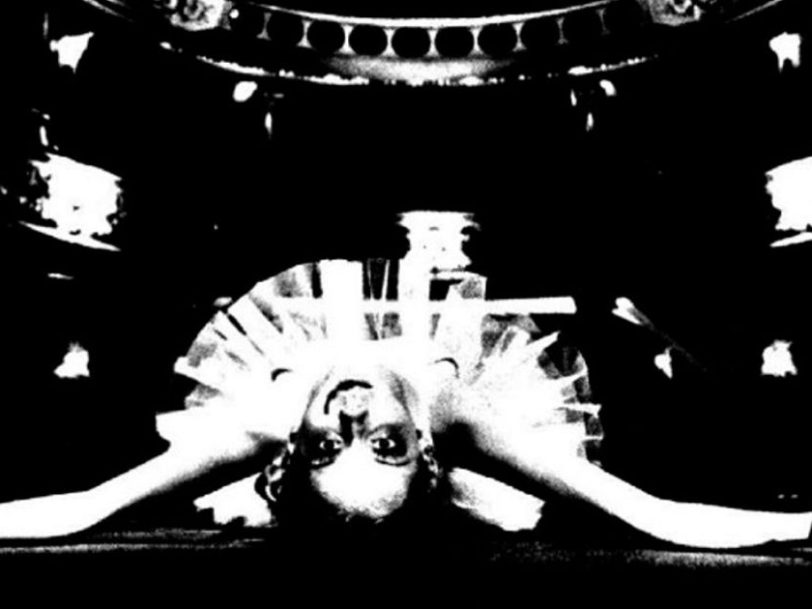While Jethro Tull’s 1972 album, Thick As A Brick, is frequently hailed as their magnum opus, it is the group’s divisive follow-up release, A Passion Play, that has quietly gained a cult following among progressive-rock enthusiasts. Unconventional and unpredictable, Jethro Tull’s sixth album was released in 1973, only to be lambasted by music critics, though there are many fans who rightly feel it deserves to be reappraised as a conceptual marvel that found the group at the height of their outlandish ambitions.
With dramatic and exaggerated arrangements that showcased songwriter Ian Anderson’s most complicated lyrical narrative yet, A Passion Play defied conventional musical boundaries and immersed listeners in a theatrical and experimental sonic journey of near-Shakespearean proportions. Blending melodic and baroque elements with moody and eccentric undertones, the album also featured cryptic lyrics that only added to the enigma. Stripped bare of the satirical humour that characterised Thick As A Brick, Anderson’s words left listeners both bewildered and intrigued in equal measure.
Though it’s easy to see why A Passion Play is regarded by many as an outlier in Jethro Tull’s discography, it nonetheless remains a fascinating listen. Here is the full story behind the album, from its theatrical complexities to its progressive nature and the reasons behind its enduring appeal…
Listen to ‘A Passion Play’ here.
The backstory: “We found it to be a complete nightmare”
In the early 70s, many rock stars were fleeing Britain to become tax exiles, particularly in the wake of the UK government imposing a top income-tax rate of 83 per cent. Jethro Tull songwriter Ian Anderson was no exception and, by the summer of 1972, he had applied for Swiss residency and holed himself up in a rented apartment in Montreux, Switzerland. It was here that Anderson began composing music and plotting out what he hoped would form the basis of the highly anticipated follow-up to Thick As A Brick. For this new album, the pressure was on to deliver a work that would not only meet but surpass the lofty expectations set by Jethro Tull’s previous release.
When the time finally came to record A Passion Play, Jethro Tull relocated to Château d’Hérouville, a residential studio near Paris that dated back to the 18th century, and which was renowned for hosting esteemed British rock acts such as Elton John, Pink Floyd and Cat Stevens. However, Jethro Tull’s experience at the Château was not regarded fondly by the band. Technical glitches plagued them throughout the recording sessions, with equipment frequently malfunctioning. “We found it to be a complete nightmare,” Ian Anderson recalled in the book Original Jethro Tull: The Glory Years, by Gary Parker. “Everything was going wrong technically every day, and we were really, really struggling to make this album.”
To compound their troubles, the band discovered that the Château’s dilapidated state left much to be desired. Unsanitary bedrooms previously inhabited by “dirty unpleasant rock people”, as Anderson described them, only added to the group’s dismay. Worse still, a parasitic infection befell one of their sound engineers, making it incredibly hard for the band to focus on creating new music.
As if these challenges weren’t enough, the culinary situation was also dire. Mysterious slabs of meat and unlabelled, fruit-fly-infested red wine ensured that Jethro Tull’s entourage endured bouts of food poisoning. “They used to cook really weird meats and things,” guitarist Martin Barre recounted to Record Collector magazine. “God knows what they were, but I’m sure we ate every songbird in the book.” Eventually, the band reached breaking point.
Illness, technical mishaps and frequent trips to the loo forced Jethro Tull to abandon the Château d’Hérouville venture entirely. Returning to England, the band made the bold decision to scrap all the music they had recorded in France. And yet, the ill-fated Château d’Hérouville experience became a defining moment for Jethro Tull. Not only did it mark the end of their chapter as tax exiles, but it also set the stage for their new album, A Passion Play. Sweeping aside feelings of disappointment, the group decided to start completely afresh.
The recording: “It was time to make an album that wasn’t a spoof”
Recorded at Morgan Studios, in London, in March 1973, six months after the disastrous Château d’Hérouville sessions, A Passion Play, quickly emerged as an imaginative stream of ideas that pushed the boundaries of progressive rock. Guided by Ian Anderson’s narrative vision of a four-act play, the band aimed to create a sprawling work akin to their previous album, Thick As A Brick, with each side of the original vinyl forming a long and continuous piece of music.




